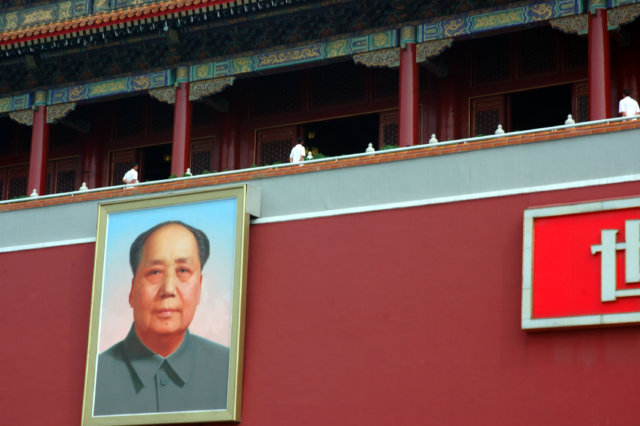On July 2, 1959, Chairman Mao Zedong convened the 8th Plenum of the Eighth Central committee of the Communist Party of China (the Lushan Conference). The intended purpose of the meeting of the politburo was to discuss the successes (and only the successes) of Mao’s Great Leap Forward, which had been initiated only a year prior.
During that time, the Chinese people had been instructed to make backyard furnaces in which they were to burn wood from the local forests and make “high-quality steel” from scrap metal. This resulted in the complete denuding of the countryside and anything slightly metallic/useful (silverware, pots, tools) was poured into furnaces to make worthless metal logs.
The people had also been instructed to change their rice planting practices to “twice as close and twice as deep,” with the expectation that yields would increase dramatically with a larger root ball. Unsurprisingly, this resulted in general crop failures when the seedlings failed to emerge. Last, the people were instructed to build massive irrigation projects without the help of experts or engineers because Mao, a man of the people, eschewed and distrusted expert opinion.
Political pressure prompts praise for man-made disaster
As the results of the Great Leap started to materialize, political pressure forced local bureaucrats to overestimate and inflate rice harvests, steel production and the success of infrastructure projects instead of reporting truthfully the dismal results. A man-made disaster had been unleashed on the most vulnerable populations by hard-headed ideologues and their dogmatic worldviews.
Much like what is happening in Oklahoma today.
Of course, instead of backyard iron furnaces burning up our resources we have the GOP leadership making ad hoc educational standards at the eleventh hour to the tune of millions in taxpayer money. Instead of “twice as deep and twice as close” we repeatedly cut our progressive taxes expecting economic yields to double and triple. Instead of massive irrigation projects built by novices we have state agencies funded by novices.
Speaking truth to power
The pending failure of the Great Leap Forward hadn’t been ignored by the entire communist leadership, however. At the Lushan Conference, the People’s Liberation Army leader and defense minister Peng Dehuai took great pains to carefully communicate the shortcomings of the Great Leap Forward and the dire situation facing the Chinese people if Mao refused to abandon his hardline ideological stands. In consequence of Peng’s frank assessment, Mao and party hardliners labeled him as leader of an “anti-party clique,” his positions as defense minister and vice-chairman of military operations were stripped from him and he was denied access to the politburo for years afterward.
In books on the subject, the phrase “he spoke truth to power” was repeated often in reference to Peng’s criticism of the Great Leap Forward. It was this phrase being repeated in reference to Rep. Leslie Osborn’s (R-Mustang) press statements and subsequent removal from GOP leadership that inspired my thinking on the similarities between my state and Mao’s.
General Peng saw how the shoddily made damns were bound to fail the same way Osborn saw how a chronically underfunded DHS was bound to fail. Both had the guts to call out the ideologues responsible for those problems, and hardline conservatives in their respective parties rejected both for their ideological impurity.






















